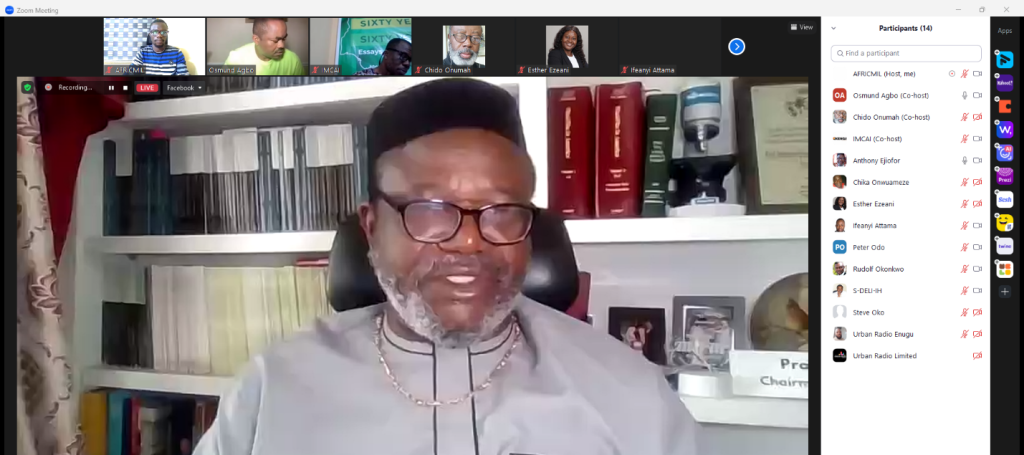Lawrence Nwimo, Awka
Professor Anthony Ejiofor, the Chairman of the World Igbo Congress (WIC), has questioned the role of the South-East governors in the affairs of the apex Igbo socio-cultural organisation, Ohanaeze Ndigbo.
This follows the perceived continued inability of the governors and Ohanaeze Ndigbo to form a common front in tackling issues affecting the region.
Featuring on monthly the Ikengaonline town-hall on Thursday night, Professor Ejiofor placed demand on the South-East governors to stop meddling in the affairs of the apex Igbo group, noting that their interference has brought more harm than good to the organisation.
Ejiofor said: “We need a unifying organisation such as Ohanaeze at this time. Nevertheless, for Ohanaeze to fulfill its role in the life of the Igbo, the meddling governors must back off.”
On the burden of financing Ohanaeze Ndigbo Worldwide which has been the responsibility of the state governors, Ejiofor said “the structure and funding of the organisation must be taken wholesale by Oha and ndi Eze and not the “compromised governors” who, he said, “would normally hold it by the jugular.”
The US-based Professor of Biochemistry described the governance structure of the South-East region as pitiful.
He blamed the lack of oneness of purpose and selfish interests on the part of the political leaders as the canker worm militating against Igbo growth and development.
“One thing that has eluded the Igbo since the end of the war is “oneness of purpose.
“Our penchant and desire to be leaders are killing us. Nevertheless, we can still work with that and make the best of a bad situation.
“The governance structures of the South-East is pitiful. Party allegiance, rather than desire to serve the people, is the order of the day.
“Political gladiators in the land are heating up our homelands and even some educated people who acquired knowledge and degrees years after graduation are hungry and angry.
“We need to re-engineer our social values for effective socio-cultural, economic, and political development. That holds the key to the Igbo land of 25 – 100 years down the road.”

